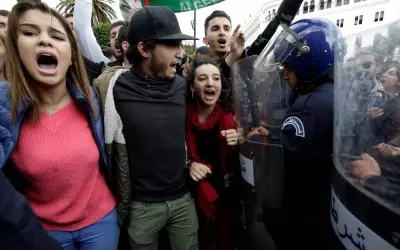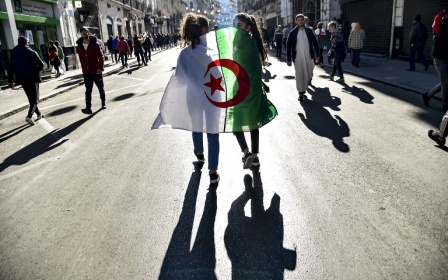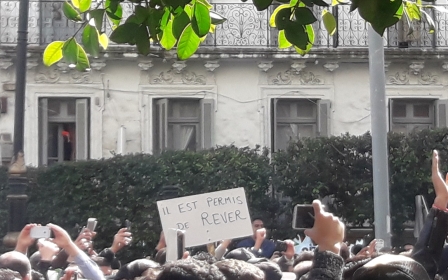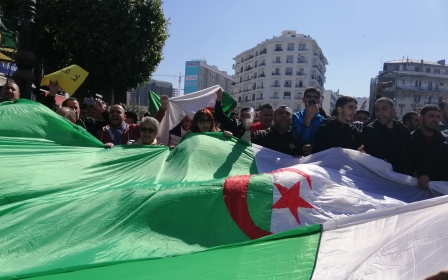Women take lead in Algiers protests against Bouteflika reelection bid
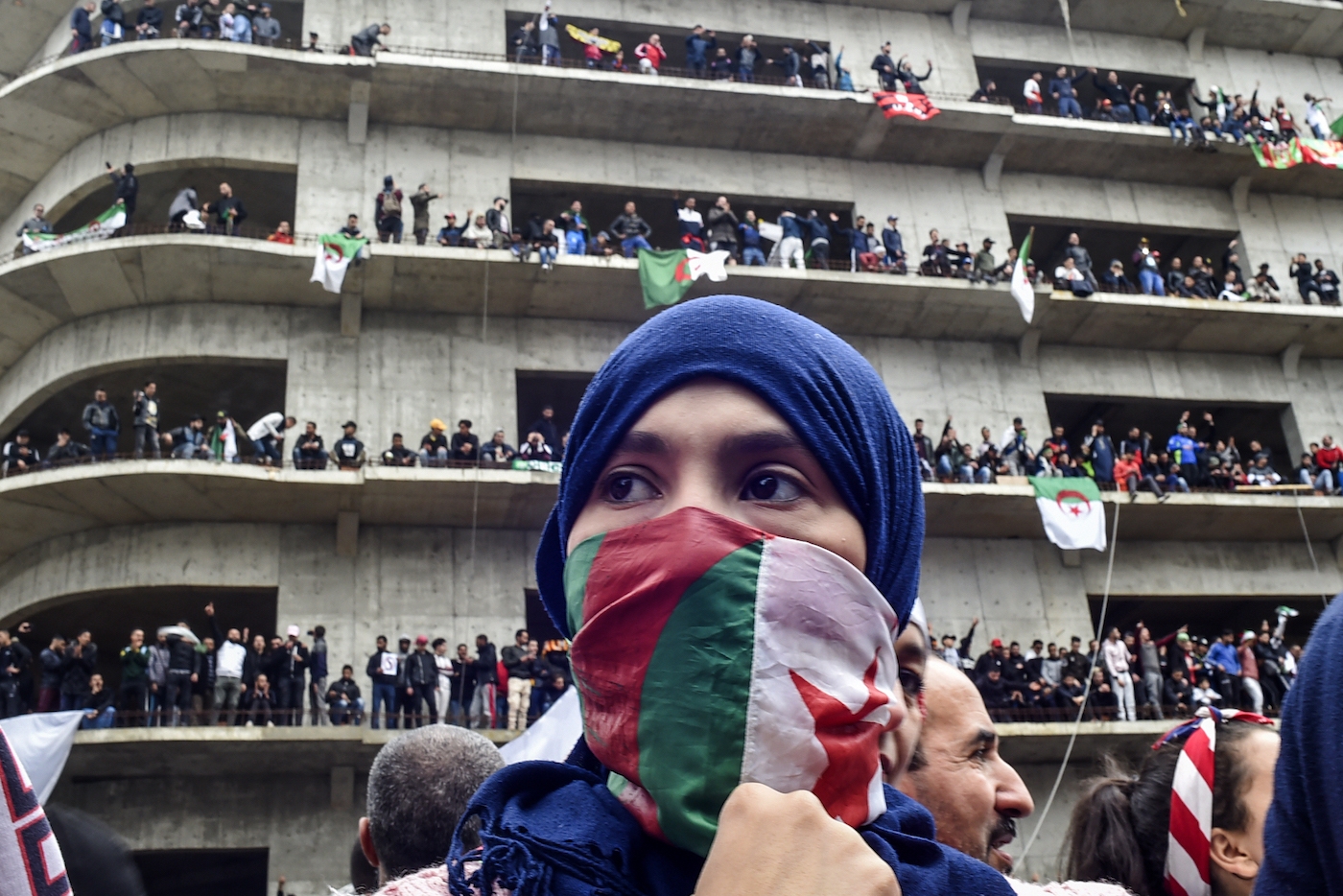
Algerian women were out in full force in a mass protest in the capital on Friday, as the movement against President Abdelaziz Bouteflika's reelection campaign continues to grow in the North African country.
Tens of thousands of people rallied in Algiers against Bouteflika's bid for a fifth term in next month's election, undeterred by a large police presence.
Women of all ages took to the streets for the protest, dubbed the "March of 20 Million", which coincided with International Women's Day. Many marched with Algerian flags and flowers in their hands.
"It's women's day, but more than that, it's a day of dignity for Algerian women," said one female demonstrator, who attended the protest with her daughter and declined to give MEE her name.
"Our elders led the revolution [for Algeria's independence from France] and we're fighting for our children against the mafia in power."
Algerian security forces detained 195 people during the protest, Reuters reported, citing Algeria's state television, and more than 100 policemen were injured throughout the day.
Several MPs from Bouteflika's ruling National Liberation Front (FLN) party also resigned on Friday, according to the private Ashourouq TV station, and joined the protesters. Ashourouq did not identify the MPs, nor did it say how many had stepped down.
Citing an unidentified source, Reuters also said that several FLN MPs resigned, but did not specify how many.
Widespread anger
Now 82, Bouteflika's reelection bid has enraged Algerians, who have staged regular protests over the past two weeks across the country.
Protests in Algiers have been banned since 2001, yet near daily demonstrations have been seen in the capital. On Friday, protests were also held in the cities of Oran and Constantine, among others, according to Algeria's TSA news site.
Authorities shut down bus and metro services in the Algerian capital ahead of Friday's protests, local media and news agencies reported.
Infirm and wheelchair-bound, Bouteflika is currently in Switzerland receiving medical treatment.
He has not spoken publicly since he had a stroke in 2013, though on Thursday he issued a written statement calling on the protesters to calm the unrest, saying it could destabilise the country.
In the statement, Bouteflika warned the demonstrators against internal and external forces using the protests to "provoke chaos".
Still, that has not deterred Algerians from continuing to pour into the streets.
The Arabic word "Silmiya" has been a recurring slogan, used during the rallies since 22 February. Meaning "peaceful", the word is being used to counter the Algerian government's warnings not to take to the streets.
The authorities have sought to quell the protests by making a parallel between what's happening today and bloody encounters in Algeria's history, including a civil war in the 1990s and regional conflicts, such as the wars in Syria or Libya.
"But the wall of fear has crumbled," said one protester on Friday, Kahina, 32, who only gave MEE her first name. "It will take more than threats to stop us from expressing our anger."
'The wall of fear has crumbled. It will take more than threats to stop us from expressing our anger'
- Kahina, 32, protester
Another female protester, Ghania, told MEE that the rally was another chance to show the Algerian government that the demonstrators "are not afraid of its threats".
"We've come to protest peacefully and we're not afraid of the police because we know they agree with us," she said.
The ongoing protests are the most serious challenge to Bouteflika's 20-year rule, as major branches of the country's largest labour union, students, lawyers, and many others have joined the movement opposed to his fifth mandate.
In an unusual move, one of Algeria’s most popular imams did not pray for the president on Friday, as he does every week. Instead, he only wished Algeria and its people the best.
Bouteflika has not confirmed when he plans to return to Algeria, though he insists he is in Switzerland only for "routine medical checkups". A spokesman for the president also sought to downplay his health issues this week, saying his condition raises "no worries".
On Friday, a prominent political activist opposed to Bouteflika, Rachid Nekkaz, was arrested outside the Geneva hospital where the octogenarian is being treated.
Adlene Meddi contributed reporting from Algiers.
Middle East Eye delivers independent and unrivalled coverage and analysis of the Middle East, North Africa and beyond. To learn more about republishing this content and the associated fees, please fill out this form. More about MEE can be found here.


